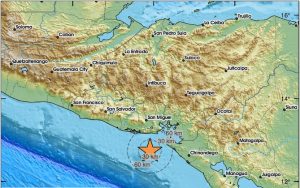The International Monetary Fund (IMF) on Monday advised El Salvador that it should not use bitcoin as legal tender due to the risks associated with the cryptocurrency.
Also Read| Why El Salvador plans a ‘Bitcoin City’ near a volcano
“Given bitcoin’s high price volatility, its use as a legal tender entails significant risks to consumer protection, financial integrity, and financial stability,” Reuters quoted the IMF as saying in its staff concluding statement of the 2021 Article IV mission to El Salvador. “Its use also gives rise to fiscal contingent liabilities.”
Also Read| El Salvador to build ‘Bitcoin City’, bond offering in 2022
The IMF conducts Article IV missions on member nations to confer with government officials before requesting IMF assistance.
El Salvador in September became the first country to accept bitcoin as legal tender alongside the US dollar.
Also Read| El Salvador’s bill on outside funding criticised by civic groups
“Because of those risks, bitcoin should not be used as a legal tender. Staff recommends narrowing the scope of the bitcoin law and urges strengthening the regulation and supervision of the new payment ecosystem,” said the IMF.
The IMF statement came only two days after El Salvador’s President Nayib Bukele revealed plans to establish the world’s first “bitcoin city,” which will be funded initially using bitcoin bonds.
Also Read| On balance: Pros and cons of El Salvador’s cryptocurrency approval
Bukele stated that the city would derive its energy from a volcano and would not collect any taxes other than the value-added tax.
Bukele has advocated for the use of bitcoin, claiming that it will allow millions of Salvadorans working abroad to send remittances home. He also stated that it will promote financial inclusion, investment, tourism, and development.
Also Read| How Bitcoins will be mined in El Salvador through volcanoes
“Although we obviously do not agree on some things, such as the adoption of #Bitcoin, the analysis it makes of our country is interesting,” Bukele said of the IMF statement.
The IMF also predicted that El Salvador’s economy would grow by about 10% in 2021 and 3.2% in 2022 and that the Central American country’s public debt would reach 85% of GDP by the end of 2021.






